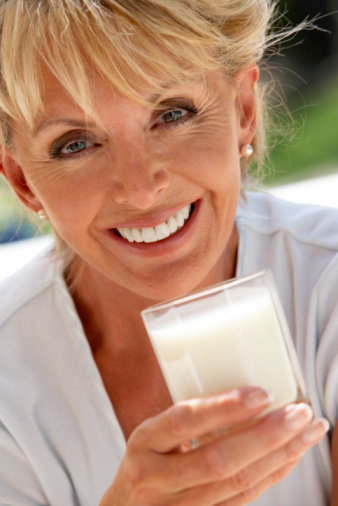 Anybody with osteoarthritis knows how painful the condition can be. Not only does it cause sharp and throbbing pain daily, but it also works to strip the joy from your life. The simplest, most common tasks become a burden, and the idea of getting out to enjoy yourself seems like a distant memory.
Anybody with osteoarthritis knows how painful the condition can be. Not only does it cause sharp and throbbing pain daily, but it also works to strip the joy from your life. The simplest, most common tasks become a burden, and the idea of getting out to enjoy yourself seems like a distant memory.
Osteoarthritis is the most common form of arthritis, and it affects an estimated 27 million Americans 25 and over. It affects men and women, but can impact them in different ways. For example, women tend to suffer more intense pain in and around their knees than men do.
The condition doesn’t have a cure, but there are things you can do to improve it. Making sure you stretch and stay limber; getting exercise to encourage blood flow and build strength to protect the bone; and a diet rich in foods that limit inflammation are all ways to combat the pain and stress of osteoarthritis.Also Read ==> Pain Behind Knee – Causes and Natural Treatments
Recently, however, a new study has shown that drinking low- or non-fat milk can slow the progression of osteoarthritis in the knees of women.The study involved 1,260 women and 900 men, all with knee osteoarthritis, and followed information about what they ate every day. They also had their knees assessed every year for a total of four years. Following the trial period, researchers found that women who regularly drank low- or non-fat milk experienced a much slower progression of their condition than those who did not.Based on these findings, researchers concluded there was an association between these varieties of milk, and its ability to slow the damaging effects of knee osteoarthritis.It’s important to note that the same results did not apply to men, or those who ate increased amounts of yogurt, cheese, or whole milk. In fact, those who ate a lot of cheese experienced the exact opposite effect: it sped up the progression and severity of the disease. Therefore, it’s clearly something in the production and processing of low- and non-fat milk that reacts with women to slow the impacts of osteoarthritis. It’s unclear what this might be exactly, but some say it might have to do with how it reacts with estrogen.
The results of this study simply indicate an association, and not a cause-and-effect relationship. Therefore, drinking more low- and non-fat milk is not the cause of slower progression of knee osteoarthritis; rather, it’s been noted that people who drink it tend to put up more resistance against the progression of osteoarthritis. They did not look at other lifestyle characteristics like exercise, smoking, or drinking.
Diet and exercise are extremely important to slowing the progression of knee osteoarthritis and helping to make you more mobile. These lifestyle additions can help ease the pain, build muscle, strengthen bones, and provide the nutrients to keep your bones both more resistant to degradation and more tolerant to pain. The more muscle you have, for example, the less pressure you’ll have on your bones. Furthermore, quality nutrition ensures that your bones are getting the vitamins and minerals—calcium, vitamin D, phosphorus, etc.—they need to stay strong and keep you at a healthy weight. The less weight you’re carrying, the less pressure on your knees.
If you’re a woman with early osteoarthritis in your knees, I’d definitely suggest increasing the amount of low- or non-fat milk in your diet. It could be another thing to help you relieve the stress and pain, while providing the freedom to enjoy your life!
Sources for Today’s Article:
Preidt, R., “Drinking milk may slow knee arthritis in women, study finds,” National Institutes of Health web site, April 7, 2014; http://www.nlm.nih.gov/medlineplus/news/fullstory_145537.html.
Hunter, D., “Exercise and Osteoarthritis,” National Institutes of Health web site, February 2009; http://www.ncbi.nlm.nih.gov/pmc/articles/PMC2667877/, last accessed April 16, 2014.
Kennedy, K., “Health Eating for Osteoarthritis,” Arthritis Foundation web site, 2014; http://www.arthritistoday.org/about-arthritis/types-of-arthritis/osteoarthritis/daily-life/osteoarthritis-diet.php, last accessed April 16, 2014.
